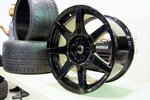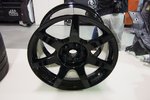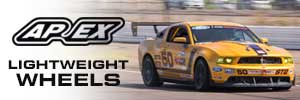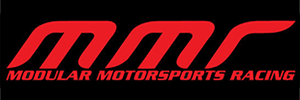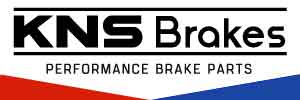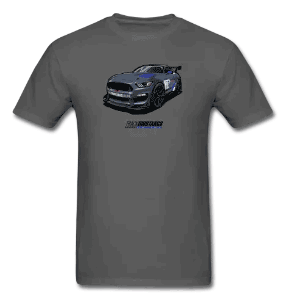I see lots of discussion around the web about the cost of these wheels. Some estimates are as high as $14K a set. I think they are a lot less than that but who knows what Ford is going to charge for them. I don't think Ford is paying over $1K each but maybe I'm too optimistic. Here's a great shot of them.
